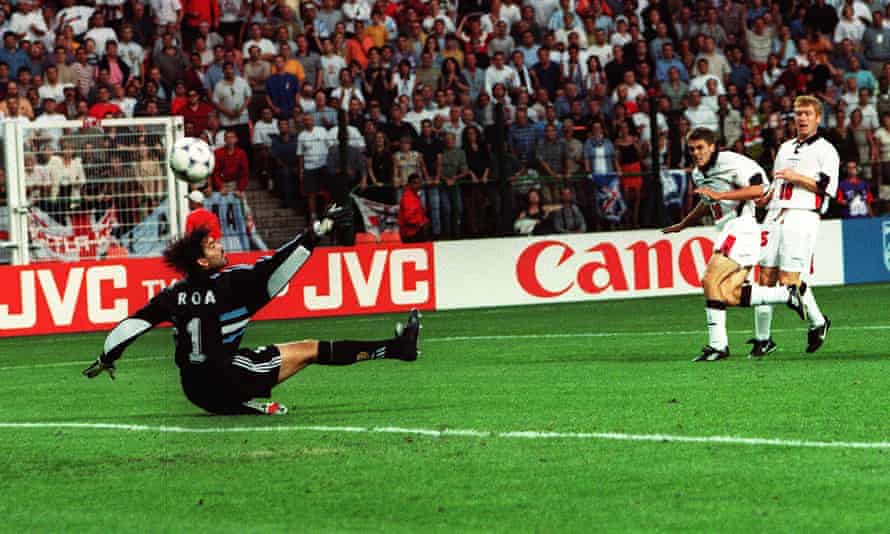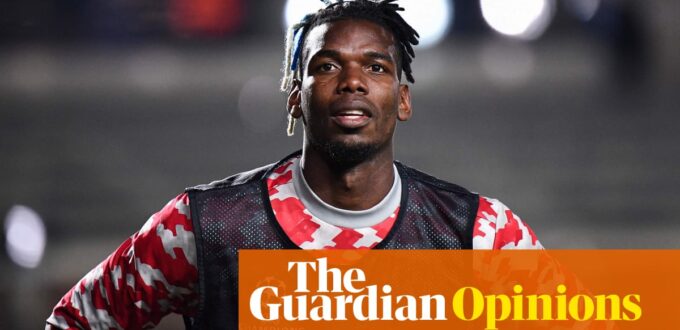During a recent doomscrolling Twitter session that veered between cricket’s institutional racism, MPs’ second jobs and people furious about Gareth Southgate’s starting XI, up popped a video of Paul Pogba.
“I am happy to announce that I’m partnering with a phenomenon – a project called Cryptodragons. They set the world record by selling an NFT for 35 Ethereum for primary sale in less than 10 seconds. This is huge. You see I’m going to get some dragon eggs – so as you know what’s gonna happen I’m gonna be the father of the dragons and the next run of reservations is coming soon so keep your eyes open. Adios Dragon talking. See you guys.”
This sounds very much like a conversation I once had with myself in a barn in Herefordshire after eating too much hash yoghurt during my only foray into illegal substances.
Where is Paul Pogba getting dragon eggs from? And for how long will he look after them? Is this one of those horror stories where someone buys a micro-pig and six months later they have a 200lb wessex saddleback walking around their living room?
As a late adopter of everything, cryptocurrency and NFTs have largely passed me by. Bitcoin is simply that poor bloke who lost £100m on a hard drive somewhere in 400 tonnes of landfill in Newport, while the excellent BBC podcast The Missing Cryptoqueen put me off cryptocurrency for life.
So for those who don’t know – quite possibly just me – Bitcoin is one of a number of cryptocurrencies. There are apparently more than 14,000. Cryptocurrency is digital money designed to allow users to send online payments around the world without using a bank and without the oversight of any government.
An NFT – a non-fungible token – is a unique digital asset that represents ownership of real-world items such as art, video clips, music, etc. Most are bought with the cryptocurrency Ethereum, which is what you’ll need if you want Pogba’s dragon egg.
So you buy an NFT like you buy a piece of art – and then it’s yours and no one else’s. According to bitcoinist.com: “NFTs are now touted as the building blocks for the metaverse.” Nope, me neither.
A company, TopGoal, has created officially licensed collections of NFTs for football fans to build “an entire metaverse”.
Is this just the modern-day football sticker? That obsession compelled me to steal pound coins from my parents’ coats and run to the newsagents to overdose on holographic shinies from Panini 86.
An NFT is a sticker that no one else can have. No swapsies. No completed albums. No sending off for your last 20 stickers. You’ve either got or you need.
TopGoal has partnered with Michael Owen who “recently gave his insights on the NFTs and metaverse in general”. We all know Michael Owen’s metaverse is that virtual helicopter tour of Dubai – watch out Sam Torrance.
There’s going to be an auction where you can buy Owen’s goal against Argentina from France 98. Also up for grabs: one of Guti’s glorious assists for Real Madrid and Rivaldo’s overhead kick against Valencia (take note Trevor Sinclair: you’re sitting on a goldmine). Quite what you can do once you own any of these is hard to decipher. Does Owen even own his goal? What happens if I watch it after someone else has bought it? Do I have to set up a direct debit?

Perhaps it might be wise to start small. A cautious NFT investment into a wayward Christian Benteke shot or Tanguy Ndombele turn. Or maybe it’s time to go big – remortgage everything to buy both the Liverpool and Wimbledon Tony Yeboah goals. Like bricks and mortar, a Yeboah will surely never lose value.
Meanwhile club after club are establishing links with crypto. For example, Watford’s sleeve sponsor is something called Dogecoin – part of a multiyear partnership with Stake.com, a global crypto casino and sports betting platform.
Last week Manchester City announced a deal with a company called 3Key with the aim to “simplify the decentralised finance (DeFi) trading analysis user experience through the power of football to engage with our fans with a range of content and activations”. So said Stephen Cieplik, the senior vice-president of Global Partnership Sales at City Football Group. But multiple efforts to find out who 3Key are have so far proved inconclusive. As Paul MacInnes wrote in the Guardian this week: “After 48 hours, the closest anyone has come to verified information is a photo of a man with a ginger beard in a checked suit who may or may not be 3Key’s ‘chief growth strategist’ Jacob Caine. City, despite requests, have not commented on the matter.”
Ed Zitron – a journalist and PR expert – says in an article entitled The Nihilism and Exploitation of the NFT Industry: “The NFT industry is just another way rich people have found to enrich themselves by selling people the idea that they too could be rich if only they participated in the scheme that enriched the rich people first.” He continues: “NFTs [are] naturally rigged towards those who already have fame and fortune.”
The Fiver: sign up and get our daily football email.
The real worry is that impressionable fans may part with money they don’t have for things they don’t need – and that don’t appear to exist. As with all industries, there will be good and bad, and clearly some clubs have done more due diligence than others. Like gambling, some people will make a lot of money. By all means come to me in 20 years to tell me I should have sold my flat to buy Glenn Hoddle’s chip against Watford.
And perhaps my first mistake was having this article published at all, and not just publishing a QR code that can be read only by the highest bidder. (Credit Jonathan Liew for that idea.) A perfect square of lines and dots below which reads: “While you’re here, we have a favour to ask – you’ve read 157 Guardian articles this year, why not make this your first NFT?”

No Comments Yet